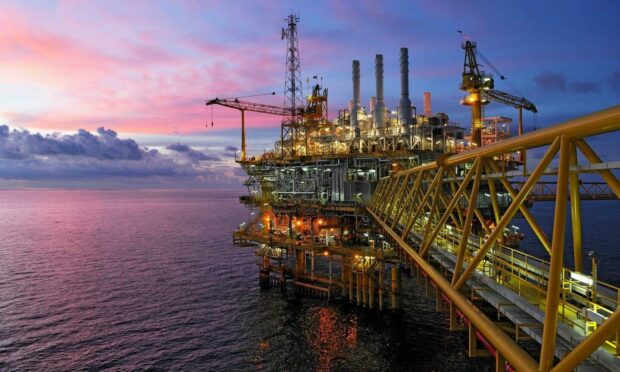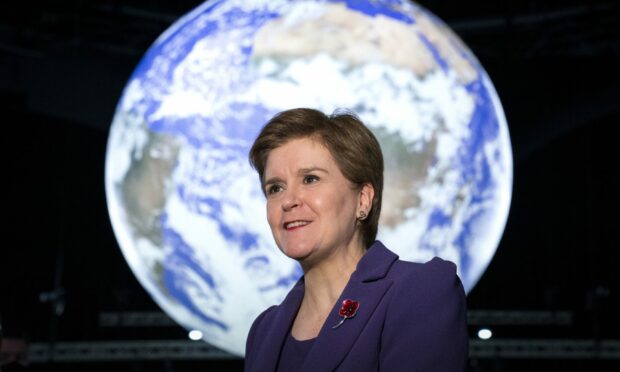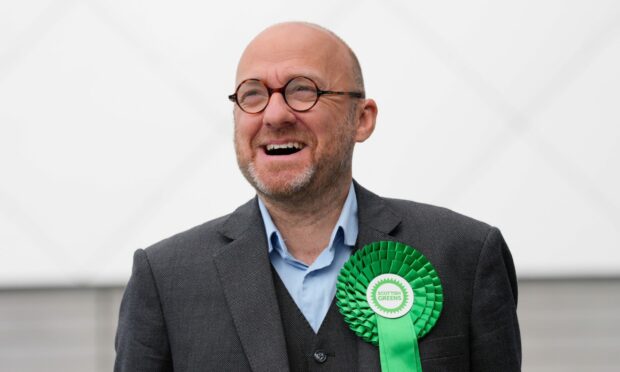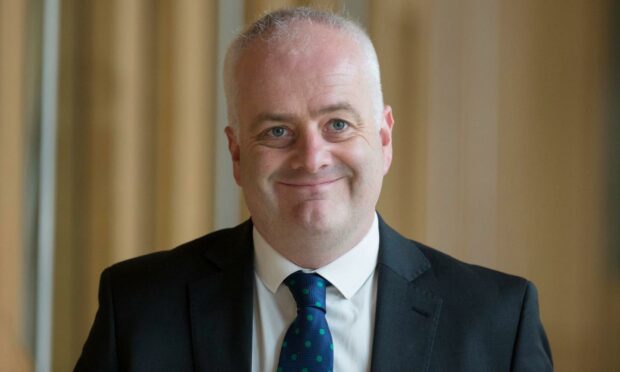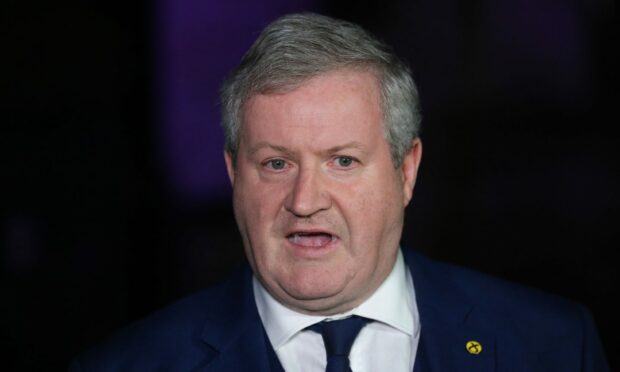The war in Ukraine has placed urgent focus on UK energy security and the future of North Sea oil and gas drilling.
And it is causing some in Nicola Sturgeon’s SNP to re-examine the speed the country tries to move away from fossil fuels.
That focus sharpened on Tuesday as the UK Government confirmed it will phase out Russian oil imports by the end of this year, with European countries also hoping to reduce their reliance.
Events in Ukraine already led to split opinions within the SNP over the future of domestic production in the North Sea.
The party’s Westminster leader Ian Blackford put Nicola Sturgeon under pressure in recent days, along with former energy secretary Fergus Ewing.
The first minister has taken a hard line on oil and gas since the COP26 climate summit in Glasgow, where she called for an end to oil and gas exploration.
But has the Russia-Ukraine crisis changed thinking on domestic drilling?
How far has SNP moved since COP26
The first minister called for an end to oil and gas exploration in the run-up to the COP26 climate conference, marking her most significant shift away from fossil fuels.
Instead, the SNP government said its focus would be on “achieving the fastest possible just transition for the oil and gas sector”.
Speaking during the climate summit, the SNP leader admitted oil and gas is the “most difficult” issue facing Scotland as it sets out to meet its net zero targets.
Ms Sturgeon told delegates the reliance of “tens of thousands of jobs” on the sector was not an excuse to avoid climate action.
This was followed up weeks later when the first minister finally confirmed her opposition to the controversial Cambo oilfield scheme, and argued the country cannot “go on extracting new oil and gas forever”.
Green coalition partners pulling one way
The Scottish Greens were accused of causing “alarm” among North Sea oil and gas workers after controversial claims about the future of the oil and gas industry.
The party’s co-leader, Patrick Harvie, was heavily criticised last year for suggesting only the “hard right” now support new oil and gas extraction.
Fergus Mutch, the SNP’s former head of communications, described these comments as “downright stupid and pretty offensive”.
The Conservatives claimed Ms Sturgeon had come out against Cambo in a “desperate bid to please her Green coalition partners”.
At the time, Deirdre Michie, chief executive of Offshore Energies UK, said a “cliff-edge transition proposed by a minority would see all of Scotland’s oil and gas needs met by imports from other countries”.
In response to the Ukraine crisis on Tuesday March 8, Tory MSP Liam Kerr asked the Scottish Government if it would review its position on North Sea oil and gas exploration in relation to the security of Scotland’s energy supply.
The Scottish Government has been clear that unlimited extraction of fossil fuels is not consistent with our climate obligations.”
Michael Matheson, Energy Secretary
Scottish Energy Secretary Michael Matheson said ramping up investment in renewables is the answer, as it can provide a “more consistent and stable form of energy supply in wake of rising prices and unpredictable supplies of oil and gas”.
He said: “The Scottish Government has been clear that unlimited extraction of fossil fuels is not consistent with our climate obligations.
“Scotland’s energy sector has a crucial role to play as Europe and the world move beyond the age of fossil fuels and we can be a key part of a solution that seeks to ensure energy security among ongoing economic and geopolitical turbulence.”
Mark Ruskell, Scottish Greens energy and climate spokesman, accused the UK Government of “doubling down on the industry that helped Putin accumulate power and influence”.
He added: “It needs to urgently invest in renewables and insulation, instead of listening to the likes of Liam Kerr and Nigel Farage who would rather prop up polluters and plunge households into poverty by locking us into a future of volatile gas prices and climate breakdown.”
North-east SNP tension over oil
There have been tensions among some north-east SNP politicians over the party’s recent stance on oil and gas production.
Mr Mutch, previously a senior SNP staff figure, was among those to criticise the first minister’s decision to oppose Cambo.
He said blocking the North Sea project would lead to “unemployment and more imported oil for decades”.
Did the Scottish Government announce 100,000 new green jobs and magically phase out domestic demand for oil and gas today?
If so, fantastic news well done. 👏🏼
If not, “Stop Cambo” doesn’t get us very far. In fact, it gets us unemployment and more imported oil for decades.
— Fergus Mutch (@Fergoodness) November 16, 2021
Aberdeen South MP Stephen Flynn also warned of the dangers of winding down the oil and gas industry before addressing domestic demand which could lead to “importing more oil and gas”.
In response to the UK government’s move to ban Russian oil, he said: “The announcement only serves to emphasise the importance of our North Sea oil and gas sector – energy security is not a choice, it is a necessity.
“Aberdeen can and must play a central role as we move to secure both our own energy supply, but also that of our European neighbours.”
Long-term impact of Ukraine war
UK Energy Secretary Kwasi Kwarteng said the UK Government will “continue to back North Sea gas for energy security”.
He added it would be “complete madness to turn off our domestic source of gas”.
Speaking in Aberdeen last week, Ms Sturgeon told journalists “nobody is suggesting we turn it off” and said a discussion is needed on new exploration.
She added: “We’ve got to accelerate the development of alternative energy sources, we’ve got to make sure we don’t increase our dependence on imports, and then we work out whether new exploration has any part to play.”
Please read: thread on energy security 🧵
The North Sea is our single largest source of gas, with the bulk of our imports coming from reliable Norway.
Unlike Europe, we're not reliant on Russian gas.
But like others, we are vulnerable to high prices set by markets.
(1/9)— Kwasi Kwarteng (@KwasiKwarteng) February 28, 2022
Ms Sturgeon agreed with the Committee on Climate Change’s report that there should be a presumption against increased import.
However, there are those within the SNP who appear to favour a different approach.
Westminster leader Ian Blackford warned that buying Russian energy sends funds to Vladimir Putin’s regime.
Former SNP energy minister Fergus Ewing shared concerns that shutting down North Sea oil and gas production would be replaced with “more wasteful imported fuels”.
And appearing on BBC Scotland’s The Nine show on March 7, Alyn Smith, the SNP’s foreign affairs spokesman at Westminster, said it is a “legitimate question” whether North Sea oil and gas production should be extended amid the war in Ukraine.
Russia is Europe’s largest supplier of natural gas, providing around 40% of gas used across the continent.
In the UK, the reliance is much less significant at just 3%, but that still amounts to import costs of more than £2 billion.
Speaking at Holyrood on Tuesday, Mr Matheson said Scotland and the UK as a whole has “security of energy supply as it stands at the present moment”.
He told MSPs the “climate crisis that we face has not gone away” and said the answer is to “decarbonise at a faster rate”.
The party’s official stance appears to remain against new oil and gas exploration but those differences of opinion from within the SNP could be significant.
